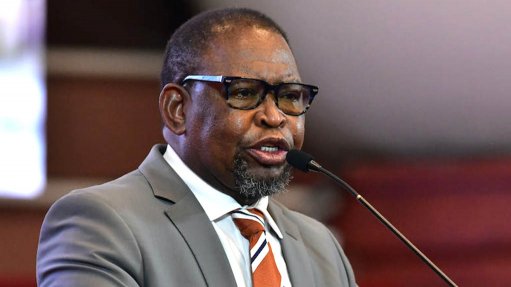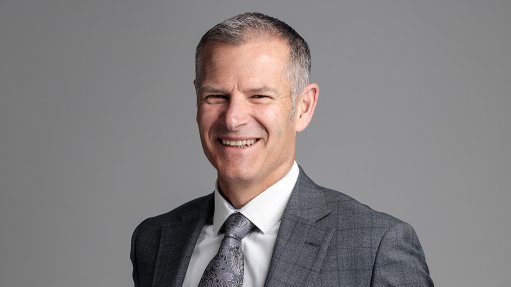Killing the professions
I am a qualified electrical engineer who holds a university degree and is registered as a professional engineer with the Engineering Council of South Africa (ECSA). I am a member of the South African Institute of Electrical Engineers (SAIEE). I have a consulting practice and we offer acoustics and noise-control design services.
The reason I am telling you this is that what it all means is that, if you employ our services, since I am a professional engineer and have some experience, there is a very good chance that the design we do will work. If it does not, the client can complain to ECSA, complain to the SAIEE and claim from my professional indemnity insurance for up to R3-million in the event of our design failing.
Now, there is no law which prevents anybody from calling themselves ‘an engineer’ and so our business competition is often not from other professional engineers or degree-qualified electrical engineers, but rather from persons who are unqualified or who claim to be qualified but are not.
We hope that, by being good at what we do, we will be chosen to do projects, despite being more expensive than the unqualified. Regrettably, not so – very, very often, we are asked to give a fee proposal and the quantity surveyor asks another firm or individual for a proposal and the work is awarded to the other firm or individual, despite the firm or individual not offering the same service as we do. We see the results of this all the time: soundproof walls that are so overdesigned that they would contain the sound of machine-gun fire, walls that would withstand a nuclear explosion . . . and also the reverse: ‘soundproofing’ that consists of a few cushions on a wall or a ‘traffic noise barrier’ that consists of a flower bed with ferns.
What surprises me is the very concept of asking professional firms (such as ours) to offer a fee proposal in competition with other proposals in a tender. This was not always the case in South Africa, but now has become so, even with government departments and municipalities. In a construction tender, a firm is asked to price a fixed result in accordance with architects’ and other drawings. The only variable is the profit they wish to earn. With professional design input, there is no ‘fixed result’; the design can be as simple or as elegant as the profession thinks is apt. By making the professionals tender for work, the design will be of the least complexity possible, commensurate with a low fee.
Designs that are not complex are normally not very innovative. Only large consulting engineering or architectural practices can afford to cut fees, since they can balance cash flows from other projects. Small firms just cannot do that. The large practices restrict hours spent by junior architects, who produce designs that are not very innovative.
If this was not bad enough, there is the matter of black economic empowerment (BEE). The BEE concept was originally to bias awards of work (construction, supply, and so on) in favour of firms which employed previously disadvantaged persons. It has since moved on – now clients, before the small practice can even offer a fee proposal, require them to be BEE compliant at Level 3 or above. Most small practices can get BEE Level 4 (exempted microenterprise) but if the practice has a white owner and, say, four staff, it is impossible to get a higher qualification than this without selling the practice or employing two more previously disadvantaged persons, which is generally just not economically possible, ironically because they have to offer fees in competition. The upshot of all this is that the small consulting practices are not going to survive. The innovation they bring will be no more. More than just a pity.
Comments
Press Office
Announcements
What's On
Subscribe to improve your user experience...
Option 1 (equivalent of R125 a month):
Receive a weekly copy of Creamer Media's Engineering News & Mining Weekly magazine
(print copy for those in South Africa and e-magazine for those outside of South Africa)
Receive daily email newsletters
Access to full search results
Access archive of magazine back copies
Access to Projects in Progress
Access to ONE Research Report of your choice in PDF format
Option 2 (equivalent of R375 a month):
All benefits from Option 1
PLUS
Access to Creamer Media's Research Channel Africa for ALL Research Reports, in PDF format, on various industrial and mining sectors
including Electricity; Water; Energy Transition; Hydrogen; Roads, Rail and Ports; Coal; Gold; Platinum; Battery Metals; etc.
Already a subscriber?
Forgotten your password?
Receive weekly copy of Creamer Media's Engineering News & Mining Weekly magazine (print copy for those in South Africa and e-magazine for those outside of South Africa)
➕
Recieve daily email newsletters
➕
Access to full search results
➕
Access archive of magazine back copies
➕
Access to Projects in Progress
➕
Access to ONE Research Report of your choice in PDF format
RESEARCH CHANNEL AFRICA
R4500 (equivalent of R375 a month)
SUBSCRIBEAll benefits from Option 1
➕
Access to Creamer Media's Research Channel Africa for ALL Research Reports on various industrial and mining sectors, in PDF format, including on:
Electricity
➕
Water
➕
Energy Transition
➕
Hydrogen
➕
Roads, Rail and Ports
➕
Coal
➕
Gold
➕
Platinum
➕
Battery Metals
➕
etc.
Receive all benefits from Option 1 or Option 2 delivered to numerous people at your company
➕
Multiple User names and Passwords for simultaneous log-ins
➕
Intranet integration access to all in your organisation


















